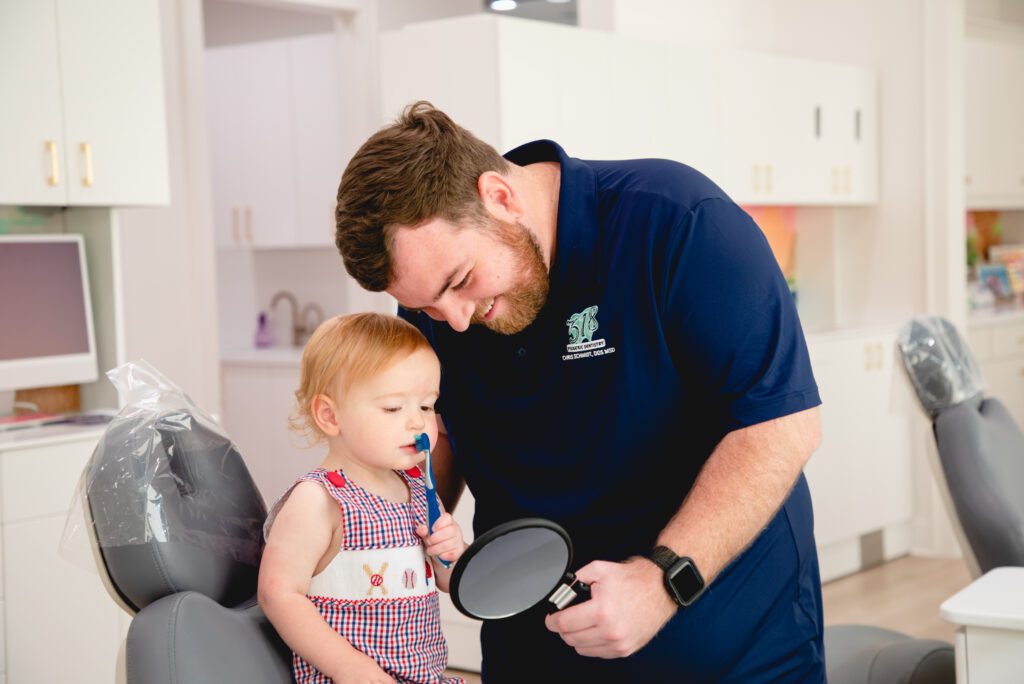

Our Blog
Tongue-Tie in Kids: What Parents Should Know
Tongue-tie (or ankyloglossia) has become a hot topic, and for good reason. It can affect how kids eat, speak, and even sleep. But it’s also one of those conditions that can be overdiagnosed, leaving parents feeling confused about whether or not their child really needs treatment.
At 318 Pediatric Dentistry, we talk with parents all the time who are navigating the tongue-tie conversation. Let’s break down what you need to know in plain, parent-to-parent language.
What is a Tongue-Tie?
Tongue-tie happens when the thin band of tissue under the tongue (called the frenulum) is shorter or tighter than normal. This limits the tongue’s movement. While some kids have no issues at all, others may experience challenges that impact everyday life.
Common Symptoms
Not every child with tongue-tie will show all (or even any) of these signs, but here are a few red flags parents tend to notice:
- Difficulty nursing or bottle-feeding in infancy
- Speech delays or unclear speech as toddlers grow
- Trouble licking, swallowing, or moving food around in the mouth
- Mouth breathing or dental issues tied to tongue position
If you’ve spotted these, it’s worth mentioning at your child’s next dental visit.
Treatment Options (There isn’t a one-size-fits-all approach!)
One of the biggest myths about tongue-tie is that every child needs surgery to correct it. That’s simply not true.
- Mild cases often resolve on their own as kids grow.
- Moderate cases may benefit from exercises, speech therapy, or a wait-and-see approach.
- Severe cases may require a simple procedure called a frenectomy, where the tight tissue is released to give the tongue more movement.
At 318 Pediatric Dentistry, we evaluate each child carefully to see what’s best for your child specifically. Why Early Evaluation Matters
The earlier tongue-tie is diagnosed, the easier it is to address before it snowballs into bigger issues like speech challenges, picky eating, or sleep disturbances. Even if treatment isn’t needed right away, having a dentist monitor the situation ensures you’re not caught off guard later.
Tongue-ties can feel overwhelming, especially with all the information (and misinformation) out there. The truth is, every child is different. Some kids thrive without treatment, while others need a little extra help.
If you’re concerned, don’t wait! Bring it up with your pediatric dentist. We’ll walk you through the options, help you separate fact from myth, and make sure your child’s smile and oral health are set up for success.
Schedule an appointment with 318 Pediatric Dentistry today. We’re here to support you and your kiddo every step of the way.